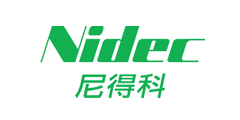Nidec Develops Five-axis Control Machining Head for the LAMDA Series , Enabling Additive Fabrication of Large and Complex Components and Adjustable Surfaces

Nidec Machine Tool Corporation (“Nidec Machine Tool” or the “Company”) today announced that it has developed a Five-axis Control Machining Head to be installed in the LAMDA series, which are powder DED type*1 metal 3D (three-dimensional) printers. Compared with conventional five-axis modeling machines, whose head is fixed and work-pieces rotate, this newly developed head is free from restrictions based on the metal 3D printer’s devices, and can perform additive fabrication of large, complex-shaped components and adjustable surfaces. Furthermore, with the one-of-a-kind local shield nozzle*2 and monitoring feedback*3 functions, the LAMDA series guarantee high-quality and stable machining. Going forward, the Company is poised to expand the head’s applications to, among others, the surface modification and repair molding of aerospace and space industry-related components, the molds of automobile bodies, and large industrial blades, and contribute to improving those products’ quality and reducing their costs.

This newly developed powder DED-type, five-axis control machining head can perform additive fabrication at an arbitrary angle, without rotating the table for the work-piece even when the work-piece (an object to be processed) is large, and moving and rotating the table is difficult. With two rotating axes incorporated (i.e., with both the inclined axis (A axis) and the pivot (C axis) installed inside the head) in them, the LAMDA series models boast a wide range of the rotational axis’ movement (A axis: -90˚ to +90˚, C axis: -180˚ to +180˚) to secure a high degree of freedom. In addition, to make easy the machining of complex shapes and adjustable surfaces, the LAMDA series powder DED metal 3D printer models enjoy a compact head and driving section to secure accessibility between the nozzle’s tip and the work-piece, and high speed and responsiveness, while maintaining the variable function of the models’ laser illumination diameters (a feature with the existing formative head).
Since releasing LAMDA200 in 2019, the Company has been developing and realizing the following cutting-edge technologies in high-speed processing, precision assurance, etc.:
- Creating the second generation of models, with their shield ranges significantly widened from those of the first local shield nozzle;
- Launching LAMDA500, a five-axis molding machine with a rotating work table;
- Developing LAMDA2000, a model with a gantry-type, direct-action mechanism capable pf handling large workpieces; and
- Adding an AI-based (artificial intelligence-based) lamination layer status checking function.
*1. DED: Short for directed energy deposition, this additive fabrication process utilizes a concentration of thermal energy to melt materials.
*2. Local shield: A function to convert a molten pool’s surrounding area into an inert gas atmosphere during a shaping (molding) process. This function enables, without the use of an argon chamber, the shaping (molding) of titanium, aluminum, and other anti-oxidation materials in an atmospheric environment.
*3. Monitoring feedback function: This function utilizes the results of the monitoring of shaping (molding) conditions using a camera installed coaxially with laser, to control laser output and other shaping (molding) conditions, and stabilize metal meltdown and solidification.
- +1 Like
- Add to Favorites
Recommend
- Nidec Launches Newly Developed, Compact & Powerful Universal Head, a Light, Thin, Short and Small Product Capable of Meeting Various Machining Needs
- Nidec Launched “MVR-Hx”Series of Double-Column Machining Centers to Accelerate The Expansion of Its Large-Scale Machine Tool Business
- Geehy Unveils GALT61120 Automotive Headlamp LED Matrix Controller with High-Resolution Flexible Dimming
- Kyocera Launches New Cut-off Solution “KGZ“ for Small Parts machining
- Building a battery-operated smart camera in five steps using a multi-core microcontroller
- Nidec Machine Tool Launches ZFA Series, Global-standard Gear Grinders that Meet the Global Needs for High-precision Gear Machining
- Five Advantages of DC-DC Power Supplies
- Five Key Points For Successful Design Of Led Driver Power
This document is provided by Sekorm Platform for VIP exclusive service. The copyright is owned by Sekorm. Without authorization, any medias, websites or individual are not allowed to reprint. When authorizing the reprint, the link of www.sekorm.com must be indicated.





























































































































































































































































































































































































































































































































































































































































































































































































































































































